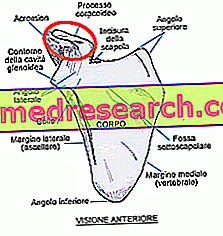Related articles: Pregnancy hyperemesis
Definition
Pregnancy hyperemesis is a pregnancy disorder characterized by an acute and uncontrollable form of vomiting and nausea. Usually, it is attributed to a rapid increase in levels of estrogen or beta subunit of human chorionic gonadotropin (beta hCG, the pregnancy hormone). However, the exact causes of hyperemesis gravidarum are not yet certain and it is hypothesized that genetic and psychological-behavioral factors also contribute to the onset of the disorder. Women, during a twin pregnancy, are particularly affected.
Most common symptoms and signs *
- Anorexia
- Asthenia
- Dry mouth
- palpitations
- ketonuria
- Ketosis
- Dehydration
- enophthalmos
- Temperature
- undernourishment
- Jaundice
- Nausea and vomiting in the early stages of pregnancy
- oliguria
- Dry skin
- Weight loss
- Gastrointestinal perforation
- Thirst
- Tachycardia
- Dark urine
- He retched
Further indications
In the first trimester of gestation, nausea and vomiting are quite common disorders. Pregnancy hyperemesis is probably an exaggeration with respect to these normal manifestations. Unlike the morning sickness, however, excessive, repeated and persistent episodes of vomiting prevent future mothers from eating adequately. Hyperemesis gravidarum can lead to progressive dehydration, rapid weight loss, sunken eyes, decreased amount of urine released, ketosis, electrolyte abnormalities and nutritional deficiencies.
In some cases, pregnancy-induced hyperemesis can cause mild transient hyperthyroidism and, if it persists beyond 16-18 weeks, can cause liver damage. Other possible consequences are Wernicke's encephalopathy and ruptured esophagus.
The diagnosis involves the clinical evaluation associated with the measurement of ketone bodies in urine and with analyzes related to renal function. To exclude other disorders affecting the thyroid or gastrointestinal tract (eg acute abdomen, hyperthyroidism, liver diseases, etc.) further laboratory, clinical or ultrasound examinations must be performed.
The treatment of hyperemesis gravidarum involves the temporary suspension of the ingestion of food by oral route, followed by a gradual recovery. Furthermore, it is important to replenish intravenous fluids accompanied by an appropriate diet and, if necessary, by taking antiemetics and vitamins.



